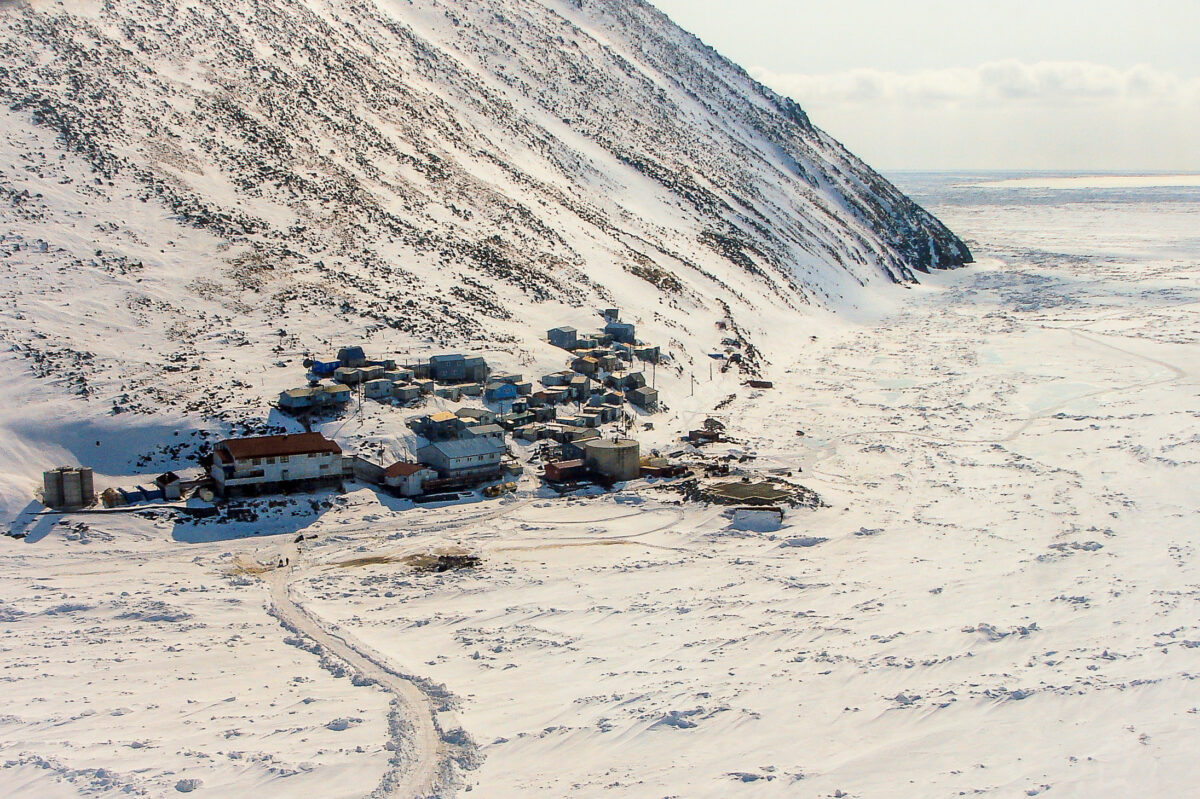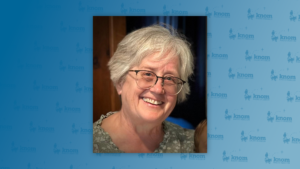By definition, all of the places we serve — from KNOM’s hometown of Nome to the communities on the farthest fringes of our AM listening area — are remote. Our mission serves an incredible, isolated corner of the world.
But even among these superlatively remote places, one community — Little Diomede, Alaska — stands out. And an incredible news story last month highlights why.
Little Diomede, or simply Diomede for short, is a village of a few hundred people located on the steep, rocky face of a small island in the Bering Strait, literally within walking distance of the International Date Line (and one of the very few places in the US from which easternmost Russia is visible).
Transportation to Diomede is always tricky, but in late January to mid-February, its main access to the outside world — periodic helicopter flights — stopped because of maintenance issues. Without these flights, the island and its tiny population were cut off from everything from mail to groceries, and as KNOM’s Matthew Smith wrote in a February news story, there was “no way on or off the island.”
As the print version of this March newsletter goes to the printer (February 13), Diomede’s helicopter hiatus continues, although it’s expected to have abated within a few days. Among those affected by the outage were KNOM board president and Nome parish priest Father Ross Tozzi, whose visit to the island — part of his ministerial duties for the communities throughout our region — was unexpectedly elongated (by several weeks!) when the helicopter broke down. It’s just the latest example of the many unique challenges of life in Western Alaska.





